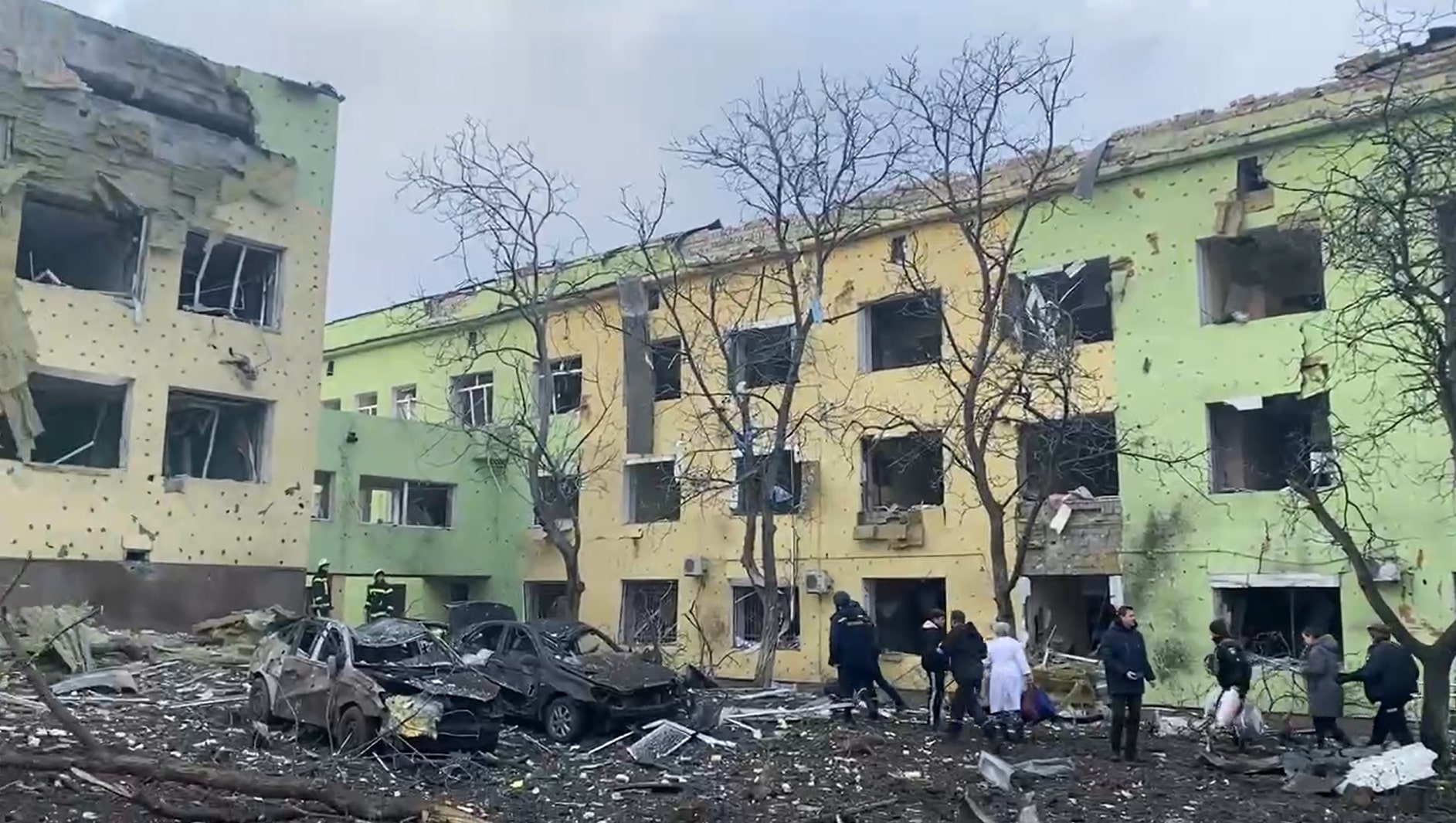Bulgaria's Reaction to Russia's Invasion of Ukraine
The Bulgarian authorities—despite the strong pro-Russia sentiments of part of the society and some political groups—condemned the Russian invasion of Ukraine. They also have accepted war refugees. However, given its energy dependence on Russia, Bulgaria is avoiding demands for a radical tightening of sanctions, especially on Russian gas and oil. At the same time, because of its traditional policy of balancing between Russia and Turkey, it is reluctant to strengthen NATO’s presence on its territory.
 Mariupol City Council/Cover Images/Forum
Mariupol City Council/Cover Images/Forum
How has Bulgaria reacted to the Russian invasion of Ukraine?
Prime Minister Kiril Petkov, who has led the government of the new coalition of the We Continue the Change, the Bulgarian Socialist Party (BSP), the There Is Such A People and the Democratic Bulgaria since December 2021, condemned the Russian invasion. This position was also taken by President Rumen Radev, who, though independent, supports the coalition even though he was reluctant to antagonise Russia during the autumn election campaign. He was also among the Central European presidents who signed a letter calling on the EU to grant candidate status to Ukraine. A declaration of condemnation also was passed by parliament, although the pro-Russia BSP and the Revival party refused to vote for the point supporting international sanctions against Russia. Also, despite resistance from the president and BSP, Petkov dismissed Defence Minister Stefan Yanev, who was insistent on describing Russia’s war against Ukraine as a “military operation”. The war’s outbreak has weakened the traditional pro-Russia sentiment in Bulgaria. According to Alpha Research, at the end of February 2022, 48% of respondents had a hostile attitude towards President Vladimir Putin, and 32% had a positive opinion; in June last year, these were 20% and 55%, respectively.
How has Bulgaria reacted to the sanctions against Russia?
Bulgaria so far has supported the EU’s sanctions against Russia. It also declares its consent to closing its ports to Russian ships, a move being considered by the EU. Petkov, with the approval of Radev, signalled that he would not support sanctions on Russian hydrocarbons unless the EU allows exceptions for Bulgaria. The country imports about 75% of its gas from Russia, and the one Bulgarian refinery owned by Lukoil supplies 60% of its fuels. At the same time, in the event of a cut-off of deliveries, the government has started talks with Greece on emergency gas imports and obtained assurances from Lukoil that non-Russian oil could be supplied to the refinery. Bulgaria closed its airspace to Russian aircraft before the EU made a bloc-wide decision, and it also terminated its membership in the remnants of Comecon—the International Bank for Economic Cooperation (in which Bulgaria has 7.5% of the shares) and the International Investment Bank (12.9%), both of which are controlled by Russia. It also suspended broadcasts of the RT and Sputnik television outlets for an indefinite period.
How has Bulgaria supported Ukraine?
Petkov categorically rejects the possibility of transferring Bulgarian MiG-29 fighters and Su-25 ground-attack aircraft to Ukraine, but does not rule out supporting it with other military equipment in coordination with the EU and NATO. Bulgaria sent a humanitarian transport to Ukraine and offered to treat Ukrainian soldiers in its military hospitals. As of 7 March, it had accepted about 38,000 refugees, of which 21,000 remain on its territory. It created reception centres in Varna and Burgas, and launched a support programme for hotels accommodating and feeding refugees (they will receive about €20 per person per day). To help refugees, Bulgarian mobile operators abolished roaming charges for users from Ukraine. A challenge for Bulgaria may be the evacuation of Ukrainians of Bulgarian ethnicity. Most of this minority of about 200,000 people in total across Ukraine live in Budjak, a region southwest of Odesa and far from the current frontlines. According to Radev, about 4,000 of them have so far asked for help in leaving.
How has the war in Ukraine affected the Bulgarian perception of security?
The invasion has not changed the basis of Bulgaria’s perception of its own security. It sees the revival of Turkey’s revisionist policy as the main challenge. Russia, on the other hand, is perceived as a counterweight to Turkey in the Black Sea region. That is why the prime minister and the president emphasise that the Russian invasion does not pose a military threat to Bulgaria and have not asked allies for a greater military presence on its territory, unlike the authorities in Romania, which is also on the Black Sea and part of NATO’s Eastern Flank. Only the co-ruling Democratic Bulgaria demanded that the Alliance create an international battle group in Bulgaria. Yanev has agreed to accept such a unit for training purposes, and Bulgaria, as the host country, would command it, which is not the case with battalion groups in Poland, the Baltic states, and Romania. The new minister of defence has, like the president and prime minister, not signalled any desire to change this approach.


